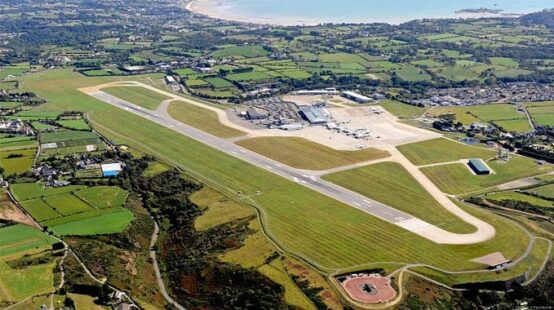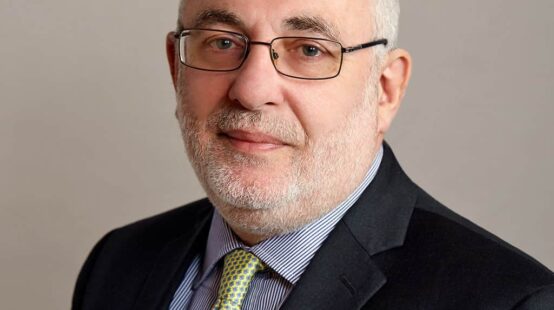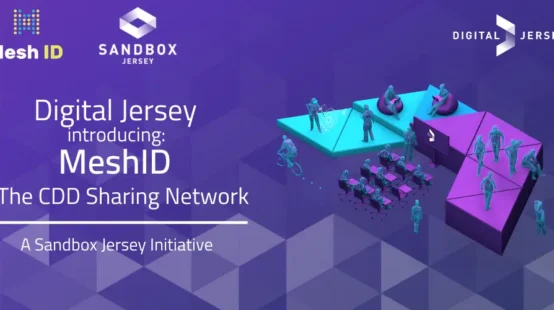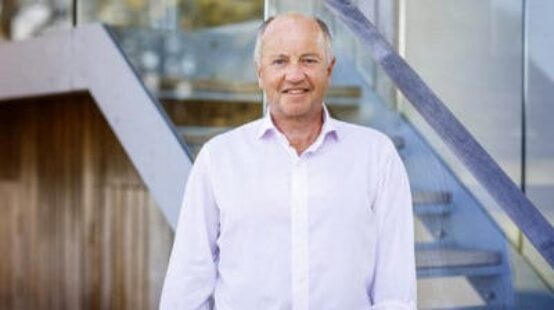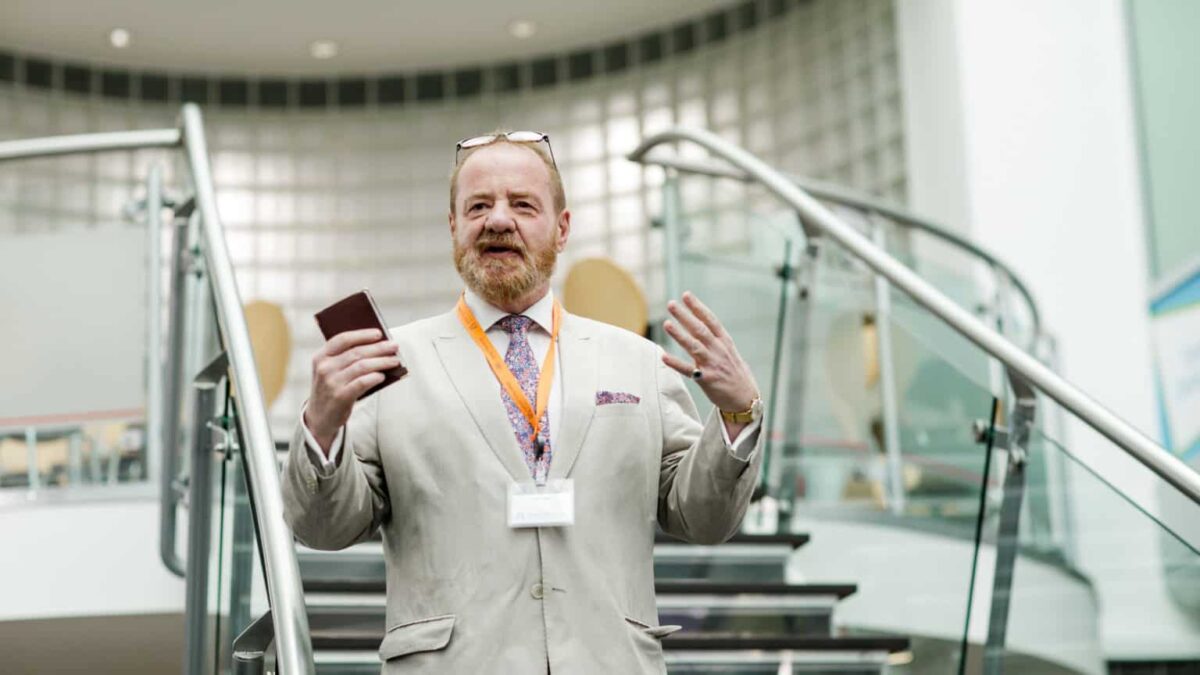
After nearly 10 years spent focusing on the digital transformation of cities, Joe Dignan had an idea: what if islands were actually the perfect testbed for exploring what was possible?
If he could find an island that could accurately mirror what was happening in the developed world, it could be used to examine how enabling technologies can be harnessed to deal with issues of pollution, energy, air quality, water, waste, transport and health.
“It’s the perfect sandbox, a petri dish, a microcosm of what’s happening in the developed world”.
A smart island, if you like, one that embraced tech such as AI, augmented and virtual reality, 5G and digital twins, could pave the way for solutions to some of the biggest challenges facing urban communities worldwide. And Jersey is that island, he says.
Jersey has the potential to take digital transformation to a level unseen anywhere else in the world, Joe believes. It just needs to take the leap.
“Jersey has a good finance industry, a good agritech industry and, according to who you speak to, it’s a democratic jurisdiction,” he says with a wry smile during a chat to discuss his involvement in Jersey TechWeek 2020.
“It’s the perfect sandbox, a petri dish, a microcosm of what’s happening in the developed world. It already has a digital twin and an IoT platform. What it doesn’t have is a data exchange, and that’s not just a Jersey issue, that’s a global issue. It doesn’t exist anywhere in the world.
“But what if Jersey created one? What if Jersey created the first sovereign data exchange in the world? What could the potential be if the island took that next step?”
‘It’s basically joining up all the plumbing’
As a recognised expert in the digital transformation arena, and the founder of consultancy Kintechi Ltd, Joe has spent a decade advising on and researching technology’s role in the future of urban living. He’s part of the World Bank’s Smart City Expert Framework, and his career, which has seen him work in both private and public organisations, has given him a background in national security, economic development, education and digital enablement. He is ideally positioned to fully grasp the vast and complex problems posed by rapid urbanisation.

Roughly 50% of the world population of 7.7 billion people lives in cities, but this is predicted to rise to 70% by 2050, potentially creating another 5,000 cities. The way to deal with the inevitable problems this will cause is to create smart cities – jurisdictions that combine digital technology, design thinking and data to improve the quality of people’s lives, as well as efficiency and sustainability.
“It’s basically joining up all the plumbing”, Joe says, and it’s a good analogy.
You can think of a smart city as a complex plumbing system of public and private services, city infrastructure, people and devices (smartphones, sensors, IoT devices) that constantly interact with each other. Within this system there are massive amounts of data exchanges taking place, but so much of this data is meaningless, explains Joe, because it can’t be brought together in one place to synthesise a useful narrative.
Creating the ‘holy grail’ of smart city technologies
Data governance can be a thorny issue, quite rightly, and governments have to consider whether data is internal or external, transactional or personalised and how the data is stored, archived, duplicated, and destroyed. But what if a common standard was created, and what if Jersey created it?
“If you can create that, and I think it’s something Jersey can do, the export potential is massive”.
“Governments have a disparate view of the citizen, their health, mobility, how they use transport, but imagine if they could meld all that information together to create a clear picture? A sovereign data exchange is the holy grail, a way for the public sector to gain a single view of the citizen”, explained Joe.
“If you can create that, and I think it’s something Jersey can do, the export potential is massive. Jersey has the right calibre of people – creating things like regulation governance and fraud protection for the financial services – to design the right privacy and security protocols to make this possible.”
With so much of the financial industry’s compliance work now being picked up by AI, designing a data exchange that can be easily replicated and exported offers the island’s economy an opportunity to diversify, he says. And there has never been better time.
Cities will need to work smarter to manage Covid-19
Rather than the financial impact of the coronavirus pandemic diverting investment away from smart and sustainable city goals, Joe argues that Covid-19 will accelerating funding because to deal with the effect of it on the world economy, we’ll need cities to work smarter, and we’ll need to understand them better, especially the movement of people.
Due to the pandemic, we’re seeing an accelerated trend towards virtualisation and digitalisation in all industries, says Joe, with more online meetings, less travel, flexible workspaces, less manual reporting and more AI-enabled analysis, maintenance tasks performed by robots and less manual intervention.

A digital twin, such as the one designed for Jersey by Augment City, will become a vital tool for authorities, giving them the ability to see the spread of contagion and respond accordingly. But to maximise a digital twin’s potential requires a data exchange. And to convince governments and organisations to invest in this technology requires new ROI models that can include health and wellbeing, for example.
“‘Don’t waste a good crisis, or so the saying goes. We have an opportunity to accelerate what we’re doing and the way we want to do it. There’s a huge consensus around looking to sustainable development goals as something we can aspire towards. The problem is that ROI models are very blunt and old and they’re not fit for purpose, but we’re working towards creating new ones”, says Joe.
“There’s been a feeling that up until now a green infrastructure will cost more but you’ll get less. We’re trying to flip that thinking. We’ve got the technology to do amazing things – look at the hydrogen buses in China – but that’s the easy bit; the really hard bit is making the business case”.
Shifting attitudes towards privacy
If Joe hopes that financial investment might now be more forthcoming, he also believes that the general public are more amenable to the idea of smart infrastructure than ever before, up to a point.
“There are lots of uses of technology that scare me…But there has been a sea change and people now want to know who is around them and who’s got the virus”
While the idea of a social credit system, such as China’s, will be a step too far for most people in democratic, developed nations, Joe does think the pandemic has shifted people’s tolerance for being monitored.
“There are lots of uses of technology that scare me. I don’t like facial recognition or social scoring, where if you drop litter you get minus 10 points. I wouldn’t want to be involved in anything like that. But there has been a sea change and people now want to know who is around them and who’s got the virus”, he says.
“The whole Covid thing has actually ameliorated people’s fears about surveillance. But data ethics has to be at the centre of this. It’s gone from being some weird outsider topic to the mainstream. It’s the idea of who pays and who gains; trust is absolutely critical”.
Jersey’s new potato
Jurisdictions around the world are catching on to the benefits of IoT platforms and digital twins, but without a data exchange to really maximise the potential of these technologies, there remains a missing piece of the jigsaw puzzle.
By stepping up to the challenge, which Joe believes Jersey is uniquely positioned to do, the island could not only improve its own decision-making capabilities, improve the efficiency of its services and make life better for islanders, but it will have created a product that could do the same for other jurisdictions.
“They say data is the new oil, and in Manchester they say it’s the new cotton. Perhaps in Jersey, data could be the new potato”, Joe says jokingly.
Perhaps it’s a joke worth taking seriously.
